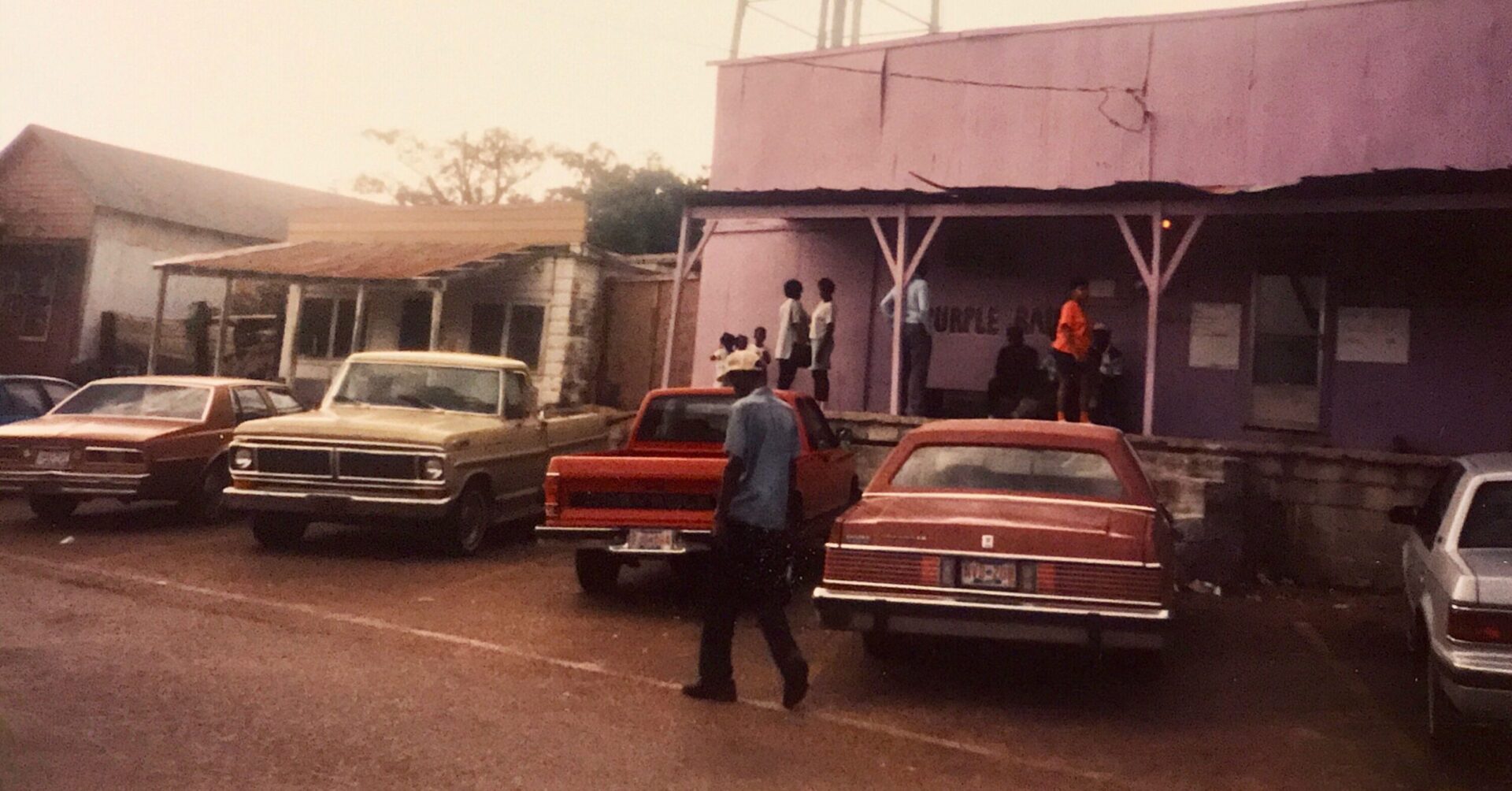Hill Country Records artist L. C. Ulmer was performing most of the afternoon with various musical friends and associates across the street from Morgan Freeman’s Ground Zero Blues Club, August 13, 2011, Clarksdale, MS
blues
Sunflower River Blues Festival 2011, Clarksdale
From Friars Point, I drove into Clarksdale for the 24th Annual Sunflower River Blues Festival. After grabbing a cappuccino at Miss Dell’s General Store, I walked down Delta Avenue, checking out festival events in progress.
If there is a music that is the essence of Memphis, it is blues. Jazz came up the river from New Orleans, of course, gospel had a foothold here, rock and roll was born when the blues was taken up by white kids who had been raised on hillbilly music. Later Memphis would be known for soul. But through it all, blues has been Memphis’ one constant, no matter what other changes might occur, and even a soul label like Stax had a formidable roster of blues artists.
And in discussing the album Bluesfinger from Memphis’ Daddy Mack Blues Band, the mention of Stax Records is appropriate, for the spirit and influence of Stax hovers lovingly over nearly every track. “Mailman”, the second track on the album shows a stylistic affinity with long-time Stax bluesman Albert King, while the title track is a reworking of the Bar-Kays’ legendary “Soulfinger”, retitled to emphasize the blues nature of the band and the tune itself. Other fine-crafted blues tunes deal with hard financial time (“Great Recession Blues”), the difficult life on the road for blues musicians (“Long Hard Road”) or standard themes of love and desire (“Can’t Make It Without Your Love”, “If You Got It”). The final track “Always Want You” leaves the Memphis sonic landscape for that of New Orleans, showing the style of blues from Louisiana that helped give birth to the genre known as “swamp pop.” Bluesfinger makes few concessions to current trends or popular tastes, but for fans of true Memphis soul and blues and the sounds of classic Stax, this new album is a dream come true.
Somewhere between 1970 and 1980, the lines between blues and soul became blurred. In the urban areas, soul had given way to funk, and the emerging hip-hop and R & B genres, but in rural areas, particularly in the south, blues and soul remained. Production styles changed, the music became more electrified and sequenced, but the emphasis on singers, and on tales of juke joint parties and back-door affairs remained constant. This formula, known today as “Southern Soul” is a remarkable subculture, at once as insular as swamp pop or beach music. Its stars might be unknown outside the subculture, but they perform to packed houses night after night in places like Wetumpka, Holly Springs or Monroe, Louisiana, and O. B. Buchana is one of those rising stars.
His album “It’s My Time”, released in 2009 by Memphis-based Ecko Records, follows the usual formula, with feel-good party songs like “Groove Thang” and “Let’s Dance”, and songs about break-ups or cheating, such as “Looks Like It’s Over” and “We Know It’s Wrong.” Suggestive or even sexually explicit songs, often with the use of double entendre, are a big part of the genre, and Buchana offers those too, with “Did You Put Your Foot In It?” (a duet with Mr. Sam) and “Slow Lick It.” But the naughtiness and partying is suddenly forgotten with the title track “It’s My Time”, a moving soulful ballad that expresses both Buchana’s aspirations as an artist and his appreciation for his fans. The album is closed out by a duet with labelmate Ms. Jody called “One Way Love.” While “It’s My Time” offers little deviation from the accepted southern soul formula, it is a well-conceived and well-performed album, and a perfect introduction to this little-known genre of music.
There was a concert of local Memphis rap and R & B in Handy Park last night, and even though I felt $10 was a little too much to pay given the lack of familiar names on the bill, there was some talent represented. Beale Street, of course, was extremely crowded because of the holiday weekend.
Club Tay-May, Mason TN, Summer 1991
Back in the summer of 1991, when I was hanging out with a lot of fellow UT-Martin students who lived at Gainsville just outside of Mason, a local festival gave me the excuse to be down on the Lower End taking pictures. I had almost forgotten that I had them. I even got a picture of the legendary Club Tay-May, which burned to the ground not long after.
UPDATED: Tay-May was the big club in Mason, and had existed in several different locations, the last one being the one pictured here. Since it could hold hundreds, it routinely featured artists like Johnnie Taylor and Little Milton, and was rumored to be the place where Rufus Thomas invented the Funky Chicken! I will always be sad that I never went inside it.
Jimbo Mathus and the Tri-State Coalition closed out the regular schedule at the 2011 North Mississippi Hill Country Picnic. After their set, there was a jam session with many of the musicians who had played earlier, and then it was over for another year.
Kenny Brown, the “adopted son” of R. L. Burnside, and an organizer of the Hill Country Picnic gets the crowd on their feet dancing. June 25, 2011
Garry Burnside Live at the North Mississippi Hill Country Picnic 2011
The Garry Burnside Band on stage at the North Mississippi Hill Country Picnic, June 25, 2011
Sharde Thomas and the Rising Star Fife and Drum Band at the North Mississippi Hill Country Picnic 2011
Sharde Thomas and the Rising Star Fife and Drum Band. Sharde also plays the piano, and incorporates other styles of music into the band’s repertoire. North Mississippi Hill Country Picnic, June 25, 2011









